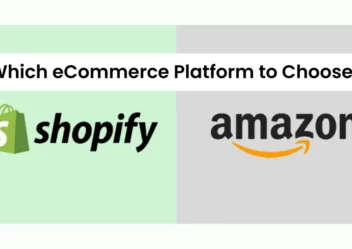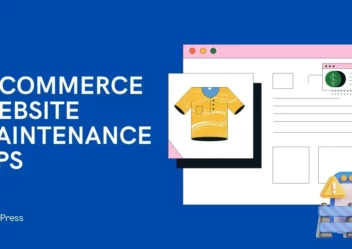What Is An eCommerce CMS? (Top 12 Picks)
Choosing the right eCommerce CMS is crucial for your online success. It determines how easily you manage your store, its scalability, and ultimately, its profitability.
This blog will explain what an eCommerce CMS is. We’ll also include our top 12 CMS picks, tailored to varying needs and budgets, so you can find the perfect fit for your business.
Whether you’re an expert entrepreneur or a beginner online seller, this blog empowers you with the knowledge to make an informed decision and launch your online store to success.
Ready to become an eCommerce pro? Let’s dive in!
What is an eCommerce CMS?
An eCommerce Content Management System (eCommerce CMS), also known as an online store builder, is a software solution designed specifically for building and managing online stores.
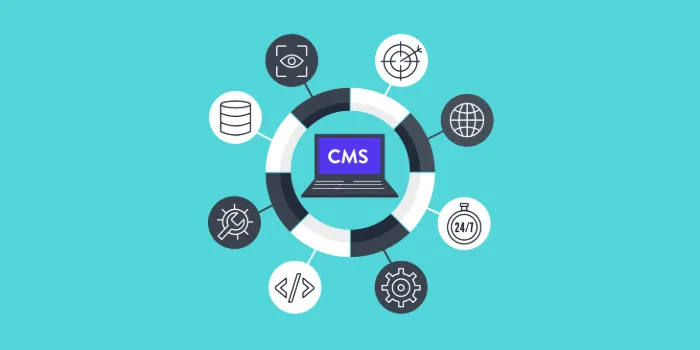
It empowers users to create and customize their online store’s design and layout, manage products and inventory, process orders and payments, and integrate various functionalities to enhance the store’s functionality and user experience.
Unlike traditional CMS platforms focused on content creation, an eCommerce CMS offers features like product listing management, shopping cart functionalities, secure payment processing integrations, and order fulfillment tools. This helps it serve the unique needs of online businesses skillfully.
Furthermore, most eCommerce CMS platforms offer cloud-based hosting, SSL encryption, and automatic updates, ensuring a secure and reliable environment for your store. They also provide scalability options, enabling you to adapt your store to accommodate high traffic and large product catalogs.
At its core, businesses can use an eCommerce CMS to:
- Create and control product listings: Add detailed SEO product descriptions, prices, images, and inventory levels with ease.
- Process orders and payments: Integrate secure payment gateways and offer multiple payment gateways for customers.
- Offer shipping and fulfillment options: Manage shipping rates and configure various fulfillment methods.
- Track and analyze sales data: Gain valuable insights into customer behavior and purchase trends.
Shopify – Best CMS for eCommerce
Shopify is a cloud-based, all-in-one eCommerce platform that is suitable for businesses of all sizes to create and control a store online. It offers a user-friendly interface, powerful features, and a comprehensive app store. That’s why Shopify is the best CMS for eCommerce now!

Key Features:
- Easy-to-use interface
- A wide range of features, including product management, order processing, shipping, and marketing
- A comprehensive app store with thousands of apps to add additional functionality to your store
- Secure and reliable platform
- 24/7 support
WordPress – eCommerce CMS
WordPress is a popular content management system that lets you create a variety of websites, including eCommerce CMS stores. It is a self-hosted platform to find your web hosting provider and install the WooCommerce plugin to add eCommerce functionality.
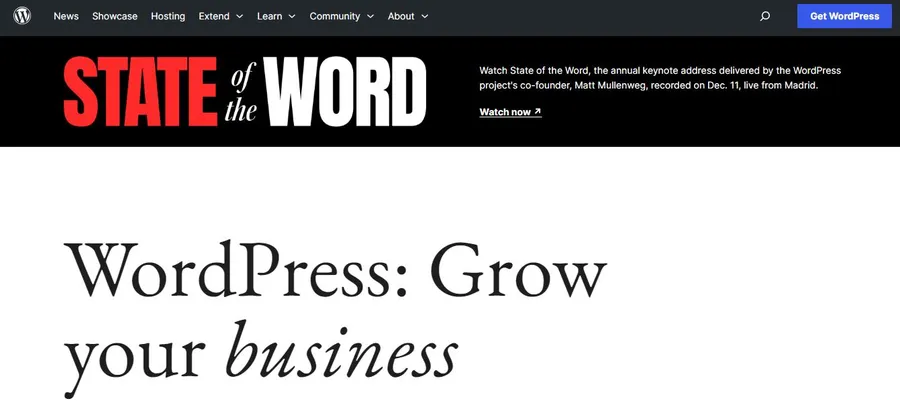
Key Features:
- Open-source and free-to-use
- Highly customizable
- Extensive plugin and theme ecosystem
- A large community of users and developers
- Requires some technical knowledge
BigCommerce – eCommerce CMS
BigCommerce is another popular all-in-one eCommerce platform that is similar to Shopify. However, it’s designed for large businesses and has more features than Shopify. BigCommerce is a hosted platform, which means that BigCommerce takes care of the technical aspects of running your store as an eCommerce content management system.

Key Features:
- A scalable platform that can grow with your business
- Built-in B2B features
- Omnichannel selling capabilities
- Strong SEO features
- 24/7 customer support
Magento – eCommerce CMS
Magento is an open source eCommerce CMS platform that offers the most flexibility and control of any of the platforms listed here. However, it also requires the most technical expertise to set up. Magento is the best fit for large businesses with a dedicated IT team.

Key Features:
- Self-hosted and free-to-use
- Highly customizable
- Extensive feature set
- A large community of users and developers
- Requires significant technical expertise
Squarespace – eCommerce CMS Platforms
Squarespace is a user-friendly, all-in-one website builder with eCommerce features. It’s among the best eCommerce CMS platforms and is ideal for small businesses and entrepreneurs. It offers beautiful templates, drag-and-drop functionality, and a powerful blogging platform.

Key Features:
- Drag-and-drop website builder
- Mobile-responsive templates
- Built-in eCommerce functionality
- Secure payment processing
- Inventory management
- Shipping and discount management
- SEO tools
- Analytics and reporting
- Social media integration
Wix
Wix is an eCommerce CMS platform that you can try. It’s known for its ease of use, drag-and-drop interface, and beautiful templates. However, it offers less flexibility and scalability compared to dedicated eCommerce platforms.

Key Features:
- Simple to use and intuitive, even for non-technical users
- Over 500 eCommerce-specific templates
- Mobile-friendly
- Built-in marketing tools
- Hundreds of third-party apps.
Prestashop
Prestashop is the best eCommerce CMS platform, with powerful features and customization options. It’s popular among developers and users who need a customizable and scalable solution. However, it has a steeper learning curve compared to Wix.

Key Features:
- Open-source and free-to-use
- Highly customizable
- Include many eCommerce features, including multi-store support, product variations, and advanced shipping rules
- Large developer community and extensive documentation
- App store with additional features and functionality
- Multilingual support
HubSpot
HubSpot, the most famous name ever, is a marketing, sales, and CRM platform that also offers eCommerce capabilities. While not as comprehensive as dedicated eCommerce platforms like Wix and PrestaShop, it is perfect for businesses that already use HubSpot for their other marketing and sales activities. HubSpot’s eCommerce CMS features are tightly integrated with its other tools, making it easy to manage your online store alongside your other marketing and sales campaigns.

Key Features:
- Tight integration with HubSpot’s other marketing and sales tools
- Easy-to-use interface
- Built-in CRM and marketing automation features
- App marketplace with additional features and functionality
- Comprehensive reporting and analytics
Drupal
Drupal is the best CMS for eCommerce stores. It’s known for its flexibility, scalability, and powerful security features.

Key Features:
- Highly scalable and secure
- Modular design for customization
- Large active community
- Extensive module library
- Commerce module for full online store
OpenCart
OpenCart is a user-friendly, affordable, and easy-to-use eCommerce CMS platform. It’s a great choice for small and medium businesses seeking a quick and cost-effective solution.
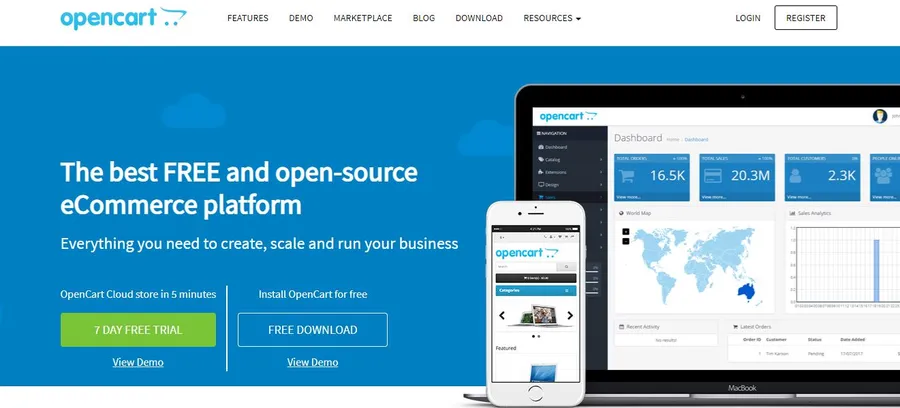
Key Features:
- User-friendly and intuitive
- Large community and active support
- SEO-friendly and mobile-responsive
- A variety of payment and shipping integrations
- An extensive extension library for added features
Don’t forget to check out Lusion – a multipurpose eCommerce Shopify theme with fast and responsive designs.
Read More: What is Headless Commerce: 8+ Best Headless Platforms

